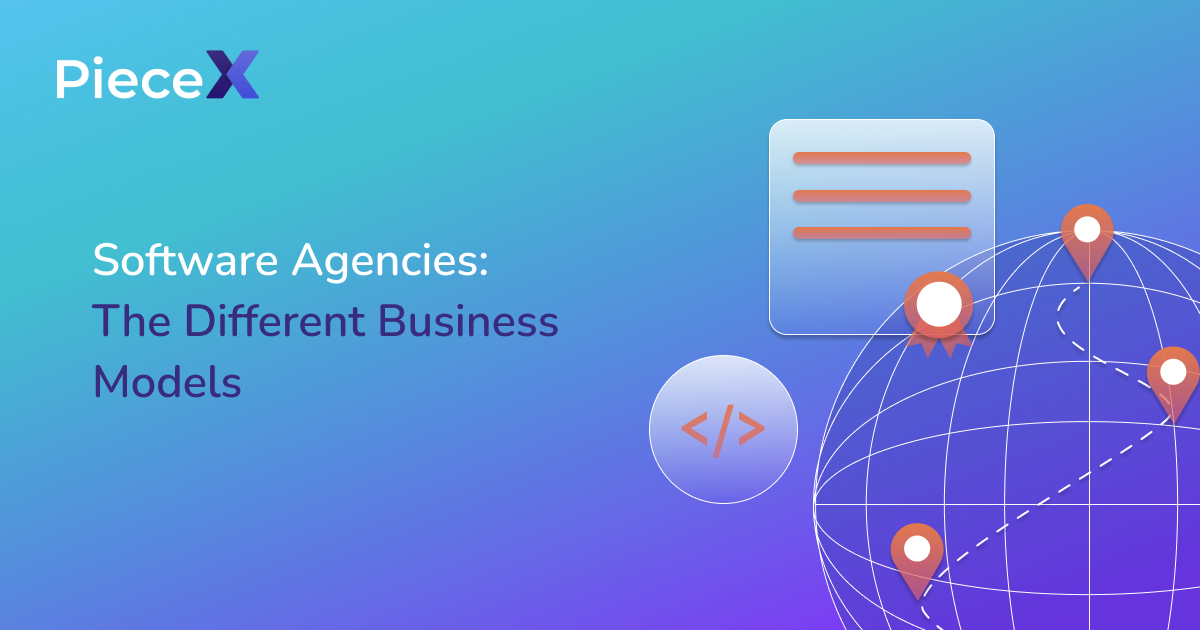
Starting a software agency or a software business is no easy task. It takes a great deal of know-how in tech to achieve, but just as much as that, it also takes quite some knowledge on how to strategize, plan, and run a business.
That’s why it is important to take into account that a software agency can have multiple different tech business models by which it can succeed financially and fulfill the business owner’s desire.
A Tech business model outlines the procedures to take and steps to follow in order to have a clear company plan for generating revenue, providing value, and achieving profit.
Hence, we are going to go through those different tech business models and break them down in order to find out exactly what you want your software agency to be and how you want it to work.
Distribution Business Model
Distribution business models are very important and they are based on how the company intends to distribute their products and services, be it On-Premise, Cloud, or Hybrid.
On-Premise business model works through installation of software products and then being run by the customer in-house. It is the most traditional tech business model in the software industry and is used by major companies such as Microsoft and Oracle.
Cloud Software business model is based on remote hosting of software applications and platforms on the internet.
Finally we have the Hybrid Software business model, which is a mixture between both the on-premise software and cloud software business models. It offers great flexibility to the customer and allows them to safekeep their sensitive data into their very own in-house systems, therefore they won’t have to worry about their data being stored outside.
Profitability from distribution business models work exactly as the name suggests, it’s all reliant on distributing software to customers in many different shapes or forms and allowing them to host it in whichever way works for them.
Software Licensing Business Model
This tech business model is mainly based on licensing the use of specific source code projects. Licenses are there to make sure what terms a client should follow when using the software source code they have purchased.
There are many ways by which licensing works. There are however, two main models for licensing that are most common within today’s market, Proprietary and Open Source.
Proprietary Software licensing is most common among software companies trying to protect their IP. This way, the source code they have created cannot be accessed, or reused by clients and users.
This means that the customer would buy the application without having any sort of access to its inner code and is thus guaranteed full support from the developer of the software.
This differs highly from Open Source licensing since you can access the source code and customize it at will.
It is also commonly funded and supported by the community itself, but it mostly lacks profitability in the short and long run.
Which takes us to the final and most currently innovative licensing method and software business model in today’s software industry, Source Code Licensing Business Model.
Source Code Licensing Business Model
This tech business model is just recently applicable as it didn’t have the necessary windows for it previously. It is most commonly based on profiting through the sale of the source code of a developed project including its source code with a clear license that justifies the terms of use.
This tech business model also has limitless potential for earning as the software developer, depending on the quality of the code, would have the ability to reuse their software, monetize it, and resell it endlessly.
Unlike proprietary software licensing, it allows the client to access the source code and customize it freely as per their company needs, and it gives the developer the chance to offer paid support for external revenue.
In many ways, it is closest to the Open Source Business model but it still remains entirely different in terms of profitability and quality, and is thus considered a newly-found mixture between multiple different tech business models that provides one of the most efficient methods of profitability, distribution, customizability, and earning.
How PieceX Can Help
There aren’t that many platforms that allow the sale of source code, however, PieceX remains one of the main platforms for that.
With its mixed business model solutions, it is a great way for software development companies to base their profitability on, as it is a marketplace for buying and selling software source code.
Startup companies with any base tech business model can benefit from the PieceX marketplace by making use of its solutions, whether it is by purchasing source code to lessen the time and cost of development or by selling their source code for limitless profit.
Find our more about the PieceX Marketplace here!
